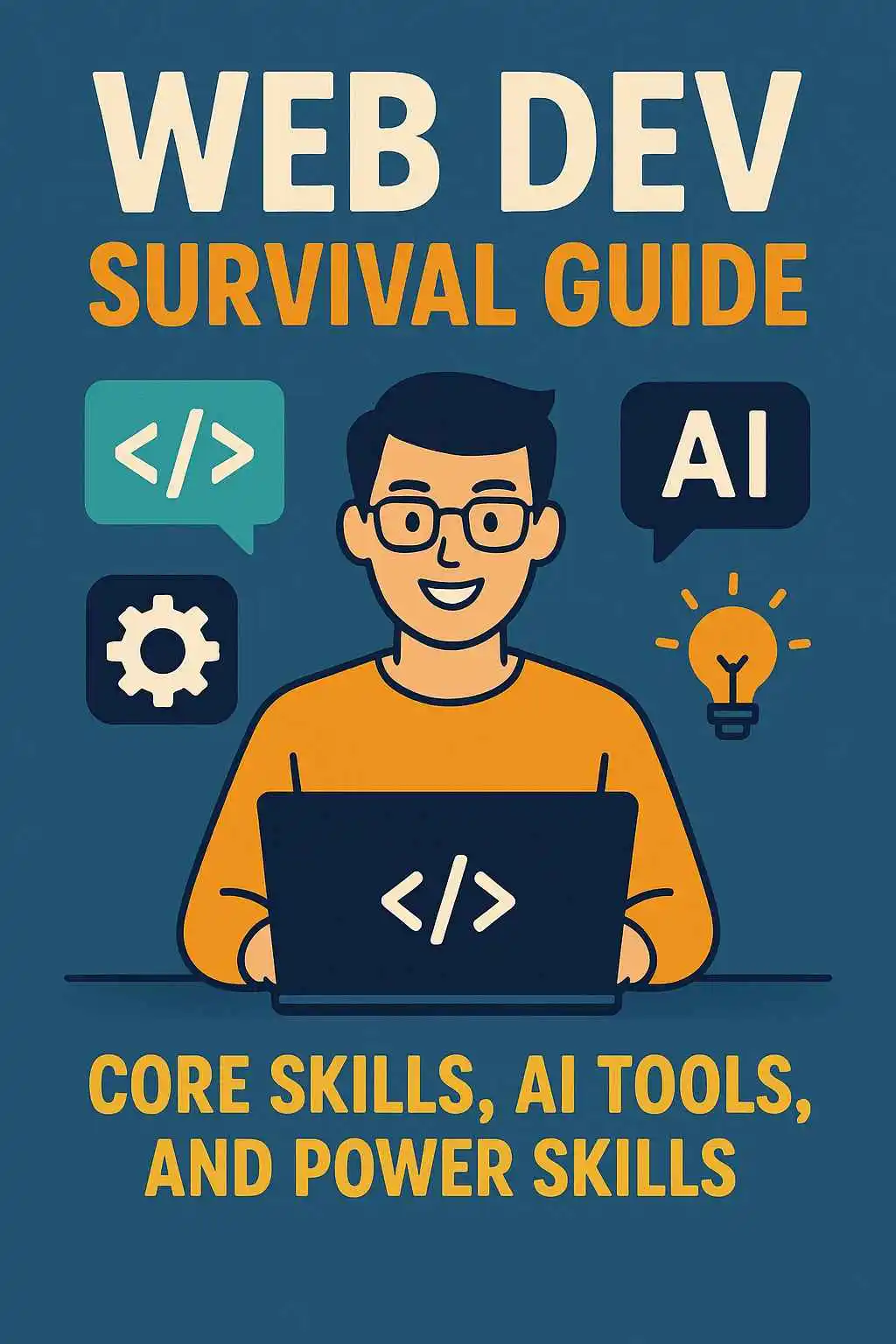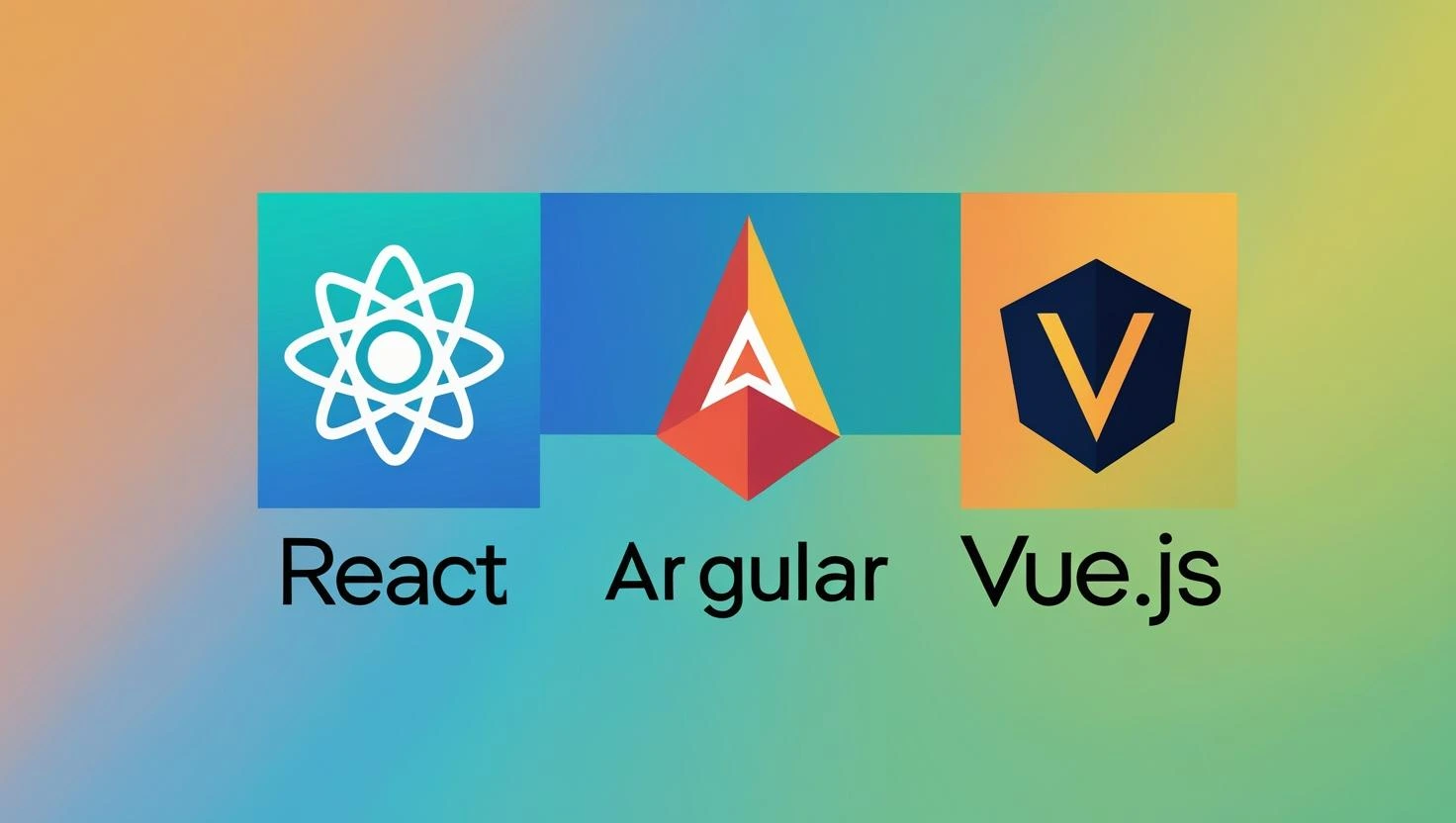Web Dev Survival Guide: Core Skills, AI Tools, and Power Skills

Welcome to the definitive guide for surviving and thriving as a web developer in today's rapidly changing tech landscape. Whether you're a seasoned pro or just starting your coding journey, this guide will equip you with the core skills, cutting-edge AI tools, and essential power skills you need to not only survive but excel. Let's dive in!
We'll break down the must-have technical skills, explore how AI is revolutionizing our workflow, and dive into the 'soft' skills that can make or break your career. Ready to level up?
Let's start with the fundamentals:
- Core Skills: HTML, CSS, JavaScript, and a solid understanding of at least one front-end framework (like React, Angular, or Vue.js) are non-negotiable. Think of these as your foundational building blocks.
- AI Tools: Explore AI code assistants (like GitHub Copilot or Tabnine) to speed up development and catch errors early. Also, consider using AI-powered design tools to help brainstorm and prototype your designs faster.
- Power Skills: Communication, collaboration, problem-solving, and continuous learning are your secret weapons. Master these, and you'll be unstoppable.
Core Web Development Skills: The Unshakeable Foundation
At the heart of every successful web developer lies a strong foundation of core technical skills. These are the languages, frameworks, and tools that form the building blocks of the web. Mastering these is non-negotiable for any aspiring or established developer.
HTML, CSS, and JavaScript: The Holy Trinity

Even with the rise of advanced frameworks and AI tools, HTML, CSS, and JavaScript remain the cornerstones of web development. These are the languages that breathe life into every website and web application.
- HTML (HyperText Markup Language): Provides the structure and content of your web pages. Focus on semantic HTML5 for better accessibility and SEO.
- CSS (Cascading Style Sheets): Controls the visual presentation of your website, including layout, colors, and fonts. Embrace CSS Grid and Flexbox for responsive designs.
- JavaScript: Adds interactivity and dynamic behavior to your website. Master ES6+ syntax and asynchronous programming for modern web development.
Frontend Frameworks: React, Angular, or Vue.js?

Frontend frameworks provide structure and efficiency in building complex user interfaces. React, Angular, and Vue.js are the leading choices, each with its strengths and use cases.
- React: A JavaScript library for building user interfaces, known for its component-based architecture and virtual DOM.
- Angular: A comprehensive framework developed by Google, offering a robust structure for large-scale applications.
- Vue.js: A progressive framework that's easy to learn and integrate, ideal for single-page applications and interactive components.
Choosing a framework depends on project requirements, team expertise, and personal preference. It's beneficial to have familiarity with at least one of these frameworks.
Backend Development: Powering the Server-Side

While a visually appealing front-end is crucial, the backend handles the behind-the-scenes logic, data storage, and server-side operations. Key backend skills include:
- Server-Side Languages: Python, Node.js, Java, PHP, Ruby.
- Databases: MySQL, PostgreSQL, MongoDB.
- APIs: RESTful APIs, GraphQL.
Understanding backend development allows you to build scalable, secure, and efficient web applications.
AI-Powered Tools: Enhancing Your Web Dev Workflow
Artificial intelligence is revolutionizing the web development process, offering tools that can automate tasks, generate code, and improve overall efficiency. Here are some AI tools that every web developer should have in their arsenal:
AI-Assisted Code Editors: GitHub Copilot, Cursor, and More
AI-assisted code editors are transforming how developers write code by providing intelligent suggestions, autocompletion, and even code generation.
- GitHub Copilot: An AI pair programmer that suggests code snippets and entire functions based on context.
- Cursor: An AI IDE that helps you write, understand, and refactor code faster.
- Codeium: Known for its efficient code completion and search capabilities.
AI-Powered Design Tools: Uizard, V0 by Vercel
Designing user interfaces can be time-consuming. AI-powered design tools can help streamline the process by generating UI components and even entire webpages from text descriptions.
- Uizard: Transforms design mockups into code, accelerating the UI development process.
- V0 by Vercel: Generates responsive UI components using Tailwind CSS from simple text prompts.
AI for Testing and Debugging: CodiumAI
Testing and debugging are critical parts of the development cycle. AI can automate test case generation and help identify bugs more efficiently.
- CodiumAI: Analyzes code and generates meaningful test cases, helping catch bugs before deployment.
Embracing AI in your workflow allows you to focus on complex problem-solving and innovation rather than repetitive tasks.
Power Skills: The Human Edge in a Tech-Driven World
In addition to technical skills and AI tools, certain power skills, also known as soft skills, are crucial for career success as a web developer. These skills enable you to collaborate effectively, communicate clearly, and adapt to change.
Communication and Collaboration: The Keys to Team Success
Web development is rarely a solo endeavor. Effective communication and collaboration are essential for working with designers, project managers, and other developers.
- Active Listening: Understand the needs and perspectives of your team members.
- Clear Communication: Articulate your ideas and technical concepts in a clear and concise manner.
- Constructive Feedback: Provide and receive feedback gracefully to improve code quality and team performance.
Problem-Solving and Critical Thinking: Tackling Complex Challenges
Web development is full of challenges, from debugging code to optimizing performance. Strong problem-solving and critical thinking skills are essential for overcoming these obstacles.
- Analytical Skills: Break down complex problems into smaller, manageable steps.
- Logical Reasoning: Identify patterns and relationships to find solutions.
- Creative Thinking: Explore unconventional approaches to solve unique challenges.
Adaptability and Continuous Learning: Staying Ahead of the Curve
The tech industry is constantly evolving, with new technologies and frameworks emerging all the time. Adaptability and a commitment to continuous learning are crucial for staying relevant.
- Growth Mindset: Embrace challenges and view failures as opportunities for learning.
- Curiosity: Stay curious about new technologies and trends in web development.
- Time Management: Effectively manage your time to balance learning with project deadlines.
Conclusion: Your Web Dev Survival Toolkit
Thriving as a web developer in today's dynamic environment requires a combination of core technical skills, proficiency with AI-powered tools, and essential power skills. By mastering HTML, CSS, and JavaScript, embracing AI-assisted code editors, and honing your communication and problem-solving abilities, you can equip yourself with the ultimate web dev survival toolkit.
Stay curious, keep learning, and never stop building!
This guide is brought to you by Davidayo.com - Your resource for web development insights and strategies.